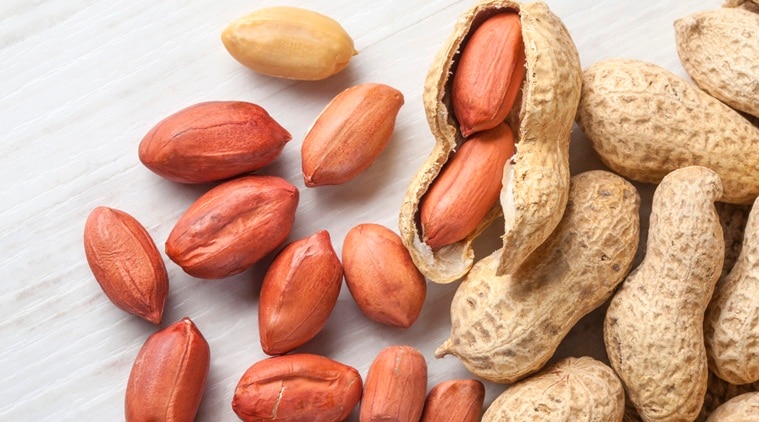In recent years, efforts to treat the allergy by way of oral immunotherapy — exposing people to small doses of peanuts gradually over time — have become apparent but the effectiveness is questioned.

One of the most accepted approach to managing peanut allergy is to avoid exposure to the allergen altogether. However, in recent years, efforts to treat the allergy by way of oral immunotherapy (OIT) — exposing people to small doses of peanuts gradually over time — has become acceptable. But, is this kind of “microdosing” appropriate? At this juncture, while there is no FDA-approved therapy involving this peanut “microdosing”, there exists a debate in the medical community over how safe this practice could be.
A recent study published in The Lancet has suggested that this treatment may make things worse for children with peanut allergies. The Lancet Trusted Source study found that such microdosing can increase the risk of anaphylaxis — where the body goes into shock after the immune system releases a wave of chemicals in response to contact with an allergen — a potentially life-threatening allergic reaction.
Itchiness, hives, swelling, sneezing, asthma, abdominal pain, drop in blood pressure, diarrhea, eczema are other reactions that can occur.
The researchers behind the meta-analysis argue that children with peanut allergies should avoid peanuts, instead of opting for oral immunotherapy, in which the dose is gradually increased to a target maximum amount so that the child can achieve de-sensitisation. The goal is to train the body to respond differently to a particular substance that causes the allergic reaction.
Notably, parents look up for such a solution in order to protect the child from dangerous triggers that might happen due to accidental exposure.
“In patients with peanut allergy, high-certainty evidence shows that available peanut oral immunotherapy regimens considerably increase allergic and anaphylactic reactions over avoidance or placebo, despite effectively inducing de-sensitisation,” the authors of the study wrote in their findings.
“Safer peanut allergy treatment approaches and rigorous randomised controlled trials that evaluate patient-important outcomes are needed,” they added.
For the research analysis, the researchers looked at data from more than 1,000 people over the course of 12 separate studies.
As per the research, the risk for anaphylaxis increased from 7.1 to 22.2 per cent when being exposed to this kind of microdosing therapy as against just being given a placebo.
The people in the study undergoing oral immunotherapy treatment showed a higher need for epinephrine (drug for allergies) use, and higher rates of non-anaphylactic reactions like vomiting.
In contrast, a 2018-study’s phase III trial published in The New England Journal of Medicine showed encouraging results to parents whose children were given an immunotherapy drug designed to build up immunity to a peanut protein. Analysing 551 people, with 496 between the ages 4 and 17 years, the study noted that 67.2 per cent who received the active drug were able to ingest 600 milligrams — about two kernels — or more of peanut protein without major symptoms.
However, pointing out that the Lancet study not feature any child under the age of five years, Edmond Chan, Pediatric Allergist from University of British Columbia stated in an article in The Conversation, “OIT is safe for preschool children and should be considered for families of those very young children with peanut allergy who ask for it.”
Citing British Columbia’s 2019 study published in the Journal of Allergy and Clinical Immunology: In Practice which assessed 270 children across Canada between the ages of nine months and five years who were diagnosed with peanut allergy by an allergist, he noted, “243 children (90 per cent) reached the maintenance stage successfully. Only 0.4 per cent of children experienced a severe allergic reaction.”
“Out of over 40,000 peanut doses, only 12 went on to receive epinephrine (0.03 per cent). Our research provides the first real-world data that oral immunotherapy is safe for preschool-aged children with peanut allergy when offered as routine treatment in a hospital or clinic, rather than within a clinical trial,” he stated.
“Rather than concluding that all children with peanut allergy should be managed with avoidance, we should be concluding that there are some patients, such as preschoolers, for whom the benefits of offering this treatment outweigh the risks,” he further mentioned in the article.
But in India, the practice of Immunotherapy is not streamlined with only certain guidelines existing including one published in the Indian Journal of Allergy, Asthma and Immunology in 2009.
Source: Read Full Article
